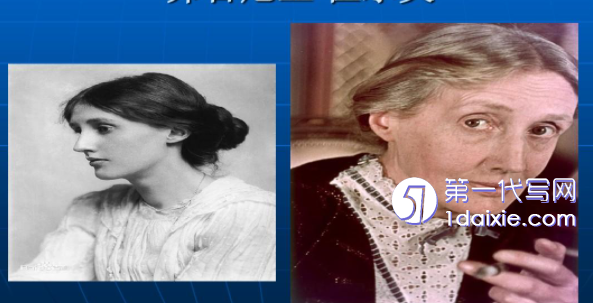本文是一篇英语毕业论文,笔者认为在弗洛伊德的观点中,“美学并不局限于美的理论,而是被描述为与我们的感觉质量有关”(弗洛伊德,2003:144)。然而,美学倾向于更多地强调美、宏伟和吸引力的积极感觉,而不是排斥和痛苦的感觉。弗洛伊德强调,人们不应该忽视负面情绪在美学中的价值。
Chapter One The Shadow of the War:The Survival Crisis ofSubjectivity
1.The Uncanny Shadow of Septimus Inside the War
The deterrence of war on people is devastating,and the people who havefirsthand experienced and sensed the destructive power of the war are the military.Septimus,one of the protagonists in the book,appears in the reader’s view as a retiredsoldier.The impact of the war on his world is much presented on the psychologicallevel,which leads to his feelings of the uncanny.This part mainly demonstrates howthe war castrates soldiers like Septimus and also the specific representations ofSeptimus’uncanny feeling,which lays the foundation for the later explanation of thecauses.

As“one of the first to volunteer”(Woolf,1997:64)in the war,Septimus has thetenacity as a youth and has the spirit of noble patriotism.As one of the members ofthe soldier,he represents“a creative force,and they are the people who are ordered toswim to the limit of survival”(Eksteins,2018:302).However,when the war comes tothe end,what brings him is the severe post-traumatic stress disorder.For Septimus,itis fearful to recall the experience of war.Although the war is over and the truce issigned,“he had,especially in the evening,these sudden thunder--claps of fear”(Woolf,1997:64).Meanwhile,Septimus is always under the pressure of fear.“He had only to open his eyes;but a weight was on them;a fear”(Woolf,1997:52).Thereare various analogous descriptions when it comes to portraying Septimus.However,all of these depictions point to Septimus’memories of the war.
2.The Uncanny Shadow of Clarissa Outside the War
The war is a ghost proper haunting the society.The elements of the war arepermeating in the novel.Not only the soldier but also the British citizens can beaffected profoundly by the war.Although Clarissa,as a representative British citizen,does not participate in the war herself like Septimus,she is still deeply impacted bythe war.
The first thing that convulses the British is to face the death and the pain of theloss of the kinsfolk during the war.There are many sides of descriptions of the crueltyof the war in the novel,one of which is the death of the little characters.“Except forsomeone like Mrs.Foxcroft at the Embassy last night eating heart out because thatnice boy was killed......;or Lady Bexborough who opened a bazaar,they said,withthe telegram in her hand,John,her favorite,killed”(Woolf,1997:4).Many peoplelose their relatives or friends in the war.“Everyone has friends who were killed in theWar”(Woolf,1997:50).Even Miss Kilman loses her brother in the war.“The warcame......but her brother had been killed”(Woolf,1997:90).In Woolf’s writing,thecruelty of war is not only presented in the massacre during the war,but also ishighlighted in the trauma and loss caused to everyone who has not participated afterthe war.This kind of trauma is a huge and irreparable loss of loved ones,awidespread,national,and overall loss.Through the narration of the deaths of the flatcharacters,the bloodiness of the war can be reflected,and it can also expose thelethality of the war,not only to the dead but also to the people alive.Through thedetails in the novel,it can be observed that Woolf criticizes the war by describing itscruelty in an indirect way.And for the war leads to the loss of the whole world,andthe physical loss of relatives absolutely causes the questioning of the world and alsothe vacancy of the spiritual world which leads to the crisis of subjectivity in thepost-war society.
Chapter Two The Permeable Shadow of Death:TheExistential Crisis of Subjectivity
1.The Repressive Image of Time
Time,as the most important element of the stream of consciousness,is presentedin the novel in its rich and varied forms.Mrs.Dalloway and other main characters inthe fiction constantly shuttle between the physical time and the psychological time.Woolf handles the real world and memories of the past well,and time undoubtedlyplays an important role in it.Time can be repressive in Woolf’s works.Actually,inMrs.Dalloway,there are a lot of repetitive descriptions about time,which can beconsidered as repetitively thinking in the uncanny of death.“The factor of therepetition of the same thing will perhaps not be acknowledged by everyone as asource of the sense of the uncanny”(Freud,2003:161).Through the prism of time,the reader can sense Clarissa’s anxiety about the elapse of time,fear of aging andillness,and inability to control life,through which the atmosphere of looming deathcan be constructed.
In the novel,the psychological world and the physical world are transformingthrough time.The form of time is diverse and complex,which is first manifested inthe elapse of physical time.In the book,the switch between physical time andpsychological time is accompanied by the descriptions of Big Ben many times.“Anindescribable pause;a suspense before Big Ben strikes”(Woolf,1997:4).Big Ben’schimes are the best proof of the time in the passage.It is irreversible,and every time it chimes,it reminds Clarissa of the preciousness of time and the approaching ofdeath.The chimes of Big Ben also remind her of the differences between her presentlife and her experiences of the past,pulling her back from the long recollection toreality,leaving her vision nowhere to hide but only to face the real world.Sheconsiders that she has little time left,and she no longer has her own time as she did inthe past.“But never would she have a moment any more”(Woolf,1997:29).Throughthe contrast of the past and the present which brings by the Big Ben,Clarissa seemsto actually sense the changing of time,and to perceive time.“For having lived inWestminster--how many years now?Over twenty”(Woolf,1997:3).The oppressionof time is also manifested in the comparison between the immortality of time and thelimited life of human beings.“The word‘time’split its husk;poured its riches overhim;and from his lips fell like shells,......and flew to attach themselves to their placesin an ode to Time;an immortal ode to Time”(Woolf,1997:52).For the long river ofhistory and time is immortal and the life of human beings is short and mortal,whichreminds the characters in the novel that death is coming sooner or later.
2.Repressive Depictions of Death Imagery
By analyzing the inner world of the main characters in Woolf’s representativework Mrs.Dalloway,the reader can discover Woolf’s view of life and deathexpressed in this work.In the novel,the descriptions of the image of death areobscure and repressive,but at the same time,the death image is perceptibleeverywhere.“Here we are dealing with the actual repression of a particular contentand the return of what has been repressed,not with the suspension of belief in itsreality.One could say that in the one case a certain ideational content was repressed,in the other the belief in its(material)reality.”(Freud,2003:170)The repressivedescriptions of death and the repetitions of death images can be considered as thereturn of repression.The repressed things will not disappear,but will reappear inreality and memory in a relatively obscure way.Therefore,the descriptions of deathin the novel such as the suicide of Septimus,the sacrifice of Evans,and the death ofClarissa’s sister are all written repressively and obscurely,which can be seen as the repression of death.And Woolf uses writing techniques to unfold the repression andfear of negative emotions in the contemporary western society.
Chapter Three Reaching the Bright Through Shadow:The Self-Discoveryof Virginia Woolf..........................37
1.The Discovery of the Shadow:From Septimus to Virginia Woolf...................37
2.The Self-Searching and Self-Release:From Clarissa to Virginia Woolf..........41
3.The Doubleness of the Uncanny:Reconstruction of Dualism.........................45
Conclusion.................................48
Chapter Three Reaching the Bright Through Shadow:TheSelf-Discovery of Virginia Woolf
1.The Discovery of the Shadow:From Septimus to Virginia Woolf
It is absolutely a fascinating way to be acquainted with a writer by searching andacknowledging the experience of his or her lifetime,and one of the best choices andmethods is to search the biographies written by themselves or others.Researcherswho are familiar with Virginia Woolf would know that all of Woolf’s biographieshave a detailed description of her childhood,because her experience and trauma inchildhood play an important role in her growth.Woolf experiences the death of herrelatives at a very early age,including her mother and her sisters.At the same time,inher autobiography,there is also a cruel description of her brother’s sexual abuse.“Virginia recalled how once at St.Ives Gerald lifted her onto a table,and out ofcuriosity,put his hand under her skirt and examined her private parts”(Nicolson,2000:18).These childhood experiences cause her psychological shadow,whichforms her childhood trauma,and directly or indirectly leads to her later mentalcollapses.However,according to the viewpoint in“The Uncanny”by Freud,theseshadows of memories would not disappear but do be repressed deeply.So where dothese repressions go?The answer may be found in“Creative Writers andDay-Dreaming”by Freud.
The novel Mrs.Dalloway is full of the smell of death,and the characterSeptimus is undoubtedly the character that is most closely related to death.In thearticle,he experiences death,ponders over death,and finally achieves the state ofdeath by committing suicide.From Septimus,the reader can clearly feel the tensionof death instinct.However,the death impulse shown by Septimus is not groundless.Most of the writing materials come from Woolf’s own perception of death and hersuicide experiences many times.According to Freud’s theory,the past repressiveexperience will not disappear,but will reappear in one way or another.From writer’sperspective,it will become the accumulation and generation of artistic texts under thewriter’s pen.“A strong experience in the present awakens in the creative writer amemory of an earlier experience(usually belonging to his childhood)from whichthere now proceeds a wish which finds its fulfillment in the creative work.The workitself exhibits elements of the recent provoking occasion as well as of the old memory”(Freud,1908:11).In Mrs.Dalloway,Woolf examines and reappears her own deathimpulse through the characterization of Septimus.

Conclusion
As one of the pioneers of modernist writers,Woolf practices and expresses herown artistic views in her works.The novel is the concentrated expression of emotionand the crystallization of the course of life.In Woolf’s essay“Phase of Fiction”,sheexpresses her understanding of the principles of novels:“For the most characteristicqualities of the novel—that it registers the slow growth and development of feeling,that it follows many lives and traces their unions and fortunes over a long stretch oftime—are the very qualities that are most incompatible with design and order”(Woolf,1996:101).Novelists like Woolf often inject their vitality of life into the descriptionof novels.Mrs.Dalloway is one of the artistic achievements of her practice of thisidea.
From the perspective of“The Uncanny”,this thesis analyzes the shadows anddark sides in Mrs.Dalloway through the two aspects of war and death.By analyzingthe anxiety of the characters in the novel,this thesis displays the crisis of subjectivityin the post-war western society,criticizes the oppression in society,and reconstructsthe role of repression through the recurrence of repression.On the other hand,byusing the theory in“Creative Writers and Day-Dreaming”of Freud,the novel can beregarded as a sublimation of Woolf herself by describing the repressions in the anartistic form.She fuses her life with the narrative in the novel,making the novel anoutlet for her to escape from life.“If‘life escapes’from their accounts,she clearlyhopes that life does not escape from hers;if there is more‘life’in her fiction,then it is,arguably,more realistic than fiction from which life has,to a greater extent,escaped”(Hawthorn,2016:93).The novel not only can be considered as a tool to make readersand writers escape from the barriers of real life,but also closely links them with theirexperiences in real life.The power of illusion and reality often needs to be balancedin the structure of the novel.
reference(omitted)
